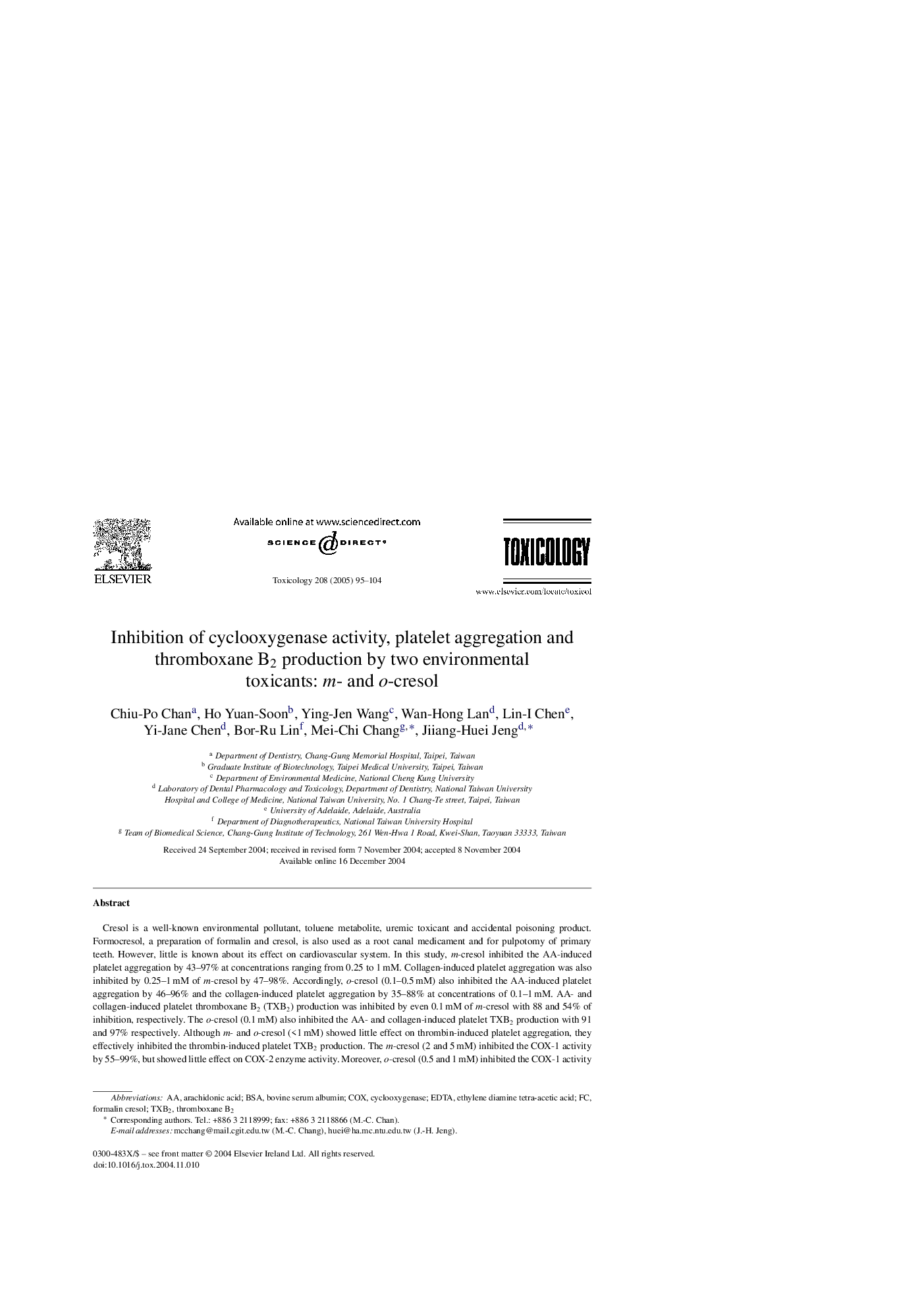| Article ID | Journal | Published Year | Pages | File Type |
|---|---|---|---|---|
| 9035051 | Toxicology | 2005 | 10 Pages |
Abstract
Cresol is a well-known environmental pollutant, toluene metabolite, uremic toxicant and accidental poisoning product. Formocresol, a preparation of formalin and cresol, is also used as a root canal medicament and for pulpotomy of primary teeth. However, little is known about its effect on cardiovascular system. In this study, m-cresol inhibited the AA-induced platelet aggregation by 43-97% at concentrations ranging from 0.25 to 1Â mM. Collagen-induced platelet aggregation was also inhibited by 0.25-1Â mM of m-cresol by 47-98%. Accordingly, o-cresol (0.1-0.5Â mM) also inhibited the AA-induced platelet aggregation by 46-96% and the collagen-induced platelet aggregation by 35-88% at concentrations of 0.1-1Â mM. AA- and collagen-induced platelet thromboxane B2 (TXB2) production was inhibited by even 0.1Â mM of m-cresol with 88 and 54% of inhibition, respectively. The o-cresol (0.1Â mM) also inhibited the AA- and collagen-induced platelet TXB2 production with 91 and 97% respectively. Although m- and o-cresol (<1Â mM) showed little effect on thrombin-induced platelet aggregation, they effectively inhibited the thrombin-induced platelet TXB2 production. The m-cresol (2 and 5Â mM) inhibited the COX-1 activity by 55-99%, but showed little effect on COX-2 enzyme activity. Moreover, o-cresol (0.5 and 1Â mM) inhibited the COX-1 activity by 40-95%. COX-2 enzyme activity was inhibited by 68% at a concentration of 5Â mM o-cresol. These results indicate that acute cresol-poisoning, direct root canal medication with formocresol or long-term occupational exposure to cresol and toluene may potentially suppress blood clot formation and lead to tissue hemorrhage via inhibition of platelet aggregation, TXB2 production and COX enzyme activity.
Keywords
Related Topics
Life Sciences
Environmental Science
Health, Toxicology and Mutagenesis
Authors
Chiu-Po Chan, Ho Yuan-Soon, Ying-Jen Wang, Wan-Hong Lan, Lin-I Chen, Yi-Jane Chen, Bor-Ru Lin, Mei-Chi Chang, Jiiang-Huei Jeng,
